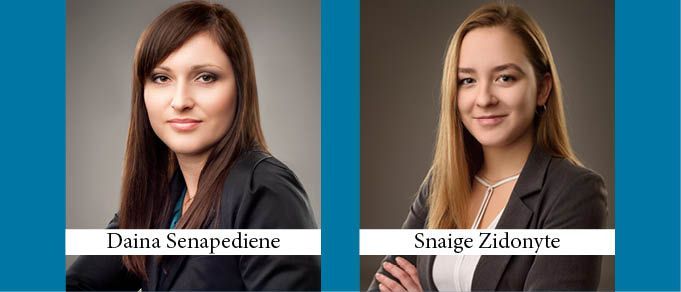In recent years, blockchain technology has offered the business world a variety of new and innovative ways to improve and grow. Starting with initial coin offerings, blockchain technology has found its way into the financial services industry and many other fields of business in Lithuania. The trend of “asset tokenization” has recently become popular among companies seeking to adopt innovative modern technologies and create novel ways to apply blockchain technology when doing business. However, as convenient and simple as it may seem, asset tokenization is an extremely complicated business model, challenging not only the traditional approaches to the sale and purchase of assets, but also raising questions about the relevance of applicable laws and regulations currently in effect.
Tokenization of assets can essentially be described as the conversion of property and/or other ownership rights into digital tokens in a system based on blockchain technology. This is usually achieved by issuing a quantity of asset-based digital tokens, each representing a fixed portion of the asset. This model allows people to invest large or small sums of money to acquire significant or insignificant parts of a particular asset, and thereby spread their investments across a number of objects. Furthermore, due to its nature, the tokenization model can be applied not only to material objects, but also to immaterial assets such as knowledge, ideas, and so on.
This application of blockchain technology provides undoubted advantages to both businesses and consumers. First, tokenization ensures the liquidity of normally highly illiquid assets such as real estate objects, making it possible to own a token that represents a very small portion of a particular real estate object, and enabling that token to be easily sold and/or purchased on a secondary market. Second, the use of blockchain technology in the sale and purchase of various assets via tokenization eliminates the need for intermediaries when executing transactions, as the transactions are carried out effortlessly via self-executing “smart contracts,” ensuring the more efficient use of time and resources in comparison with traditional methods of sale and purchase of assets. Finally, each blockchain transaction is automatically recorded together with the complete history of and information about a particular asset – delivering a system that offers both clarity and reliability.
The legal basis of this blockchain-based asset tokenization model is, however, not always clear and/or properly developed. Even though the utilization of blockchain technology in the purchase and sale of assets via tokenization is becoming increasingly popular, legal problems related to it are not uncommon. In its position on virtual currencies and initial coin offering of October 10, 2017, the Bank of Lithuania – the supervisory authority of financial market participants in the Republic of Lithuania – stated that tokens that have characteristics of securities (i.e., that grant ownership rights and/or can be transferred to other persons as well as traded on secondary markets) are subject to the provisions of the Law on Securities of the Republic of Lithuania. As a result, due to the fact that many asset tokenization models involve investing in objects via special-purpose vehicles in the hope of gaining future profit, the sale of such tokens may be interpreted as an issue of securities and therefore fall under strict regulations of securities.
What is more, the purchase of an asset-based token does not provide the same outcome as the actual purchase of an asset or part thereof. In accordance with the laws and regulations of the Republic of Lithuania currently in effect, strict requirements must be met and procedures must be followed when selling or purchasing certain assets – for example, real estate objects. The issue of real estate object-based tokens is usually not performed in compliance with these requirements and therefore is modelled as a sale of shares or loans, etc. Sales of shares or loans, however, are separately regulated by specific laws and other legal acts, in some cases requiring companies to gain licenses or fulfill other mandatory legal requirements. As a result, even though not exactly securities, real estate objects, or loans, but possessing certain features of each of them, asset-based tokens often end up falling under strict legal requirements which are either very inconvenient or impossible to fulfill.
All things considered, the legal environment in Lithuania has, in many cases, not yet fully developed to accommodate the market of tokenized assets, resulting in innovative asset tokenization models being non-compliant with current legal regulations. However, because of the nature of blockchain technology, tokenization is deemed to provide not only greater convenience, but also greater clarity and order in the process of sale and purchase of assets.
By Daina Senapediene, Partner, and Snaige Zidonyte, Junior Associate, CEE Attorneys Lithuania
This Article was originally published in Issue 5.8 of the CEE Legal Matters Magazine. If you would like to receive a hard copy of the magazine, you can subscribe here.
